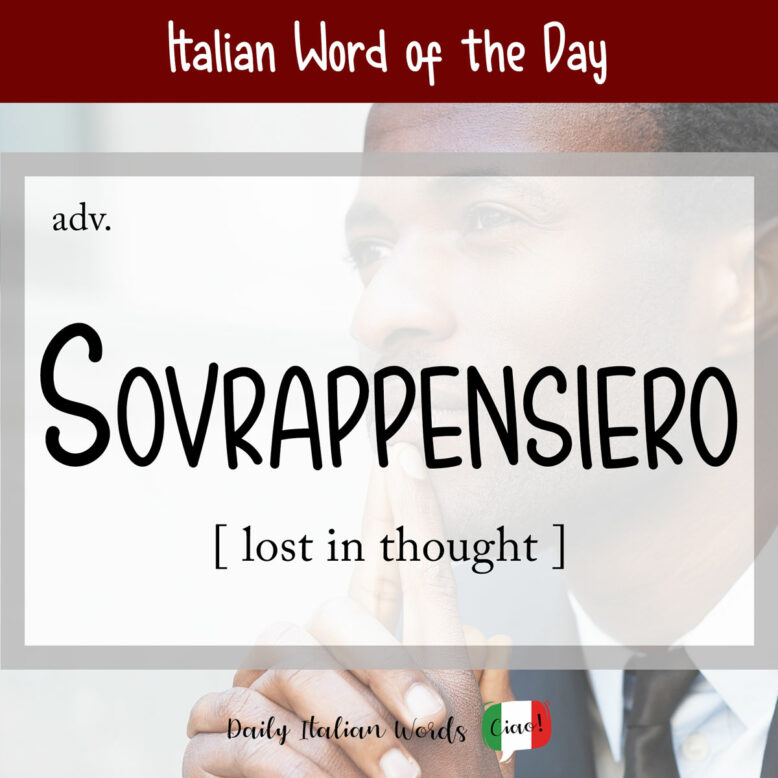Do you often find yourself a million miles away while listening to other people speak? Then today’s word is for you!
Sovrappensiero is an adverb that means “lost in thought” “absent-mindedly” or “distractedly”. It is the combination of sovra- (a variant of sopra- meaning “above” or “over”) and pensiero (thought). The addition of the extra P is the result of a process called raddoppiamento (doubling).

Numerous dictionaries, including the DOP (Dictionary of Orthography and Pronunciation), actually list soprappensiero as the main form and considers sovrappensiero less common. However, sovrappensiero appears to have gained the upper hand, with 114,000 results yielded by Google’s search engine compared to just 56,300 for soprappensiero. Furthermore, I asked many Italians I know, and the overwhelming majority expressed a preference for the sovra- variant. Hence, my choice to go with sovrappensiero as our word of the day!
Ero sovrappensiero e ho messo il sale nel caffè invece dello zucchero.
While lost in thought, I added salt to my coffee instead of sugar.
Ascoltavo il loro discorso sovrappensiero.
I listened to their conversation absent-mindedly.

According to Academia della Crusca, the difference between sopra- and sovra- can be explained by the phonetic phenomenon of lenition, or in other words, the transformation of the plosive [p] into the fricative [v]. It is a common occurrence in northern Italian dialects.
In the case of this particular word, it is possible that the current preference for sovra- compared to sopra- can be attributed to euphonic reasons – that is, the three consecutive Ps make the word more difficult to pronounce.
Heather Broster is a graduate with honours in linguistics from the University of Western Ontario. She is an aspiring polyglot, proficient in English and Italian, as well as Japanese, Welsh, and French to varying degrees of fluency. Originally from Toronto, Heather has resided in various countries, notably Italy for a period of six years. Her primary focus lies in the fields of language acquisition, education, and bilingual instruction.


